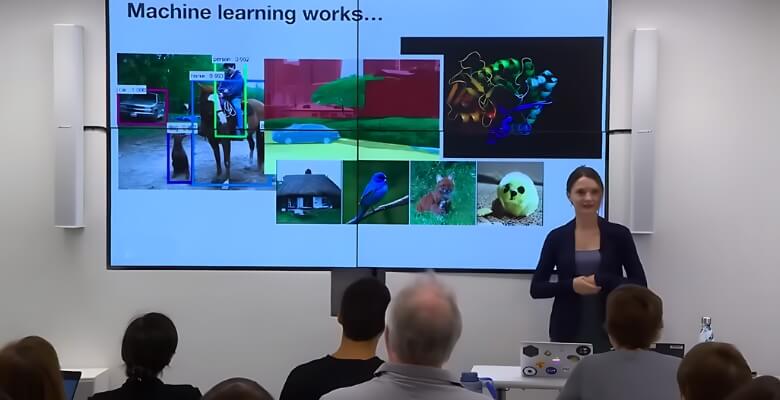Attending an academic conference can be a valuable opportunity for professional growth, networking, and knowledge sharing. However, the cost can be a significant barrier. So, how can I get funding to attend an academic conference?
For an academic conference to get funding, develop a compelling proposal, target potential sponsors, use crowdfunding platforms, and apply for grants and partnerships. You can increase your chances of securing the necessary funds by using these strategies.
You can effectively gather the financial resources needed to participate by following these strategies. Keep reading to discover detailed steps and tips to fund your conference attendance successfully.
The Importance of Attending Academic Conferences
Participating in academic conferences is essential for professional development and networking. These events offer opportunities to present your research, learn from others, and connect with peers. To make the most of these experiences, it’s important to identify notable conferences to participate in and recognize their significance. Selecting the right conferences allows you to maximize learning and expand your professional network effectively.

Expanding Your Knowledge Base
Conferences offer a unique platform to learn about the latest research and developments in your field. Engaging with experts and attending presentations broadens your understanding. This exposure to new ideas can inspire your research. Furthermore, it keeps you updated on industry trends and innovations.
Networking Opportunities
Building a professional network is vital for career growth. Conferences bring together scholars, researchers, and industry professionals from around the world. Networking at these events can lead to collaborations and job opportunities. The international academic conference setting is perfect for making valuable connections.
Presenting Your Research
Presenting at conferences allows you to showcase your work to a broader audience. It provides a platform to receive feedback and improve your research. Engaging with attendees helps refine your ideas and methodologies. This exposure can enhance your academic reputation and credibility.
Gaining Professional Skills
Attending conferences helps develop essential professional skills. Public speaking, presentation, and critical thinking skills are honed through active participation. Engaging in discussions and Q&A sessions boosts your confidence. These skills are transferable and beneficial in various professional settings.
Inspiration and Motivation
Conferences can reignite your passion for your field. Hearing about innovative research and success stories can be incredibly motivating. It’s an opportunity to step back and see the bigger picture. This renewed enthusiasm can positively impact your work and future endeavors.
Who Are Potential Sponsors of Academic Conferences and How to Approach Them?
Finding sponsors for academic conferences is essential for covering costs and enhancing the event’s success. Identifying potential sponsors and approaching them effectively can significantly increase your chances of securing support. Here’s a guide on who to consider as sponsors and how to approach them.
- Educational Institutions: Universities and colleges often sponsor academic conferences to promote their programs. They are interested in events that align with their academic focus. Approach them by highlighting how the conference benefits their faculty and students.
- Corporations: Corporations sponsor conferences to boost their brand visibility and connect with potential talent. They look for events related to their industry or business interests. Emphasize how their involvement can provide networking opportunities and market exposure.
- Professional Associations: Professional associations sponsor conferences to support their members’ professional development. They seek events that offer valuable insights and networking opportunities. Demonstrate how the conference aligns with its mission and benefits its members.
- Non-Profit Organizations: Non-profits sponsor conferences to advance their cause and increase awareness. They are interested in events that promote their mission and values. Highlight how the conference can help achieve their goals and reach a broader audience.
- Government Agencies: Government agencies sponsor conferences to support research and development in specific fields. They focus on events that align with their policy priorities and objectives. Approach them by showcasing how the conference addresses relevant issues and promotes innovation.
How Can I Get Funding to Attend an Academic Conference?
Attending an academic conference can be challenging, but it is possible with the right approach. Follow these steps to successfully obtain the financial support you need.
Step 1: Create a Compelling Proposal
Develop a detailed proposal highlighting the benefits of attending the conference. Emphasize how the event will contribute to your professional growth. A strong proposal can persuade sponsors to support your attendance.
Step 2: Identify Potential Sponsors
Research organizations and companies that align with your field. Target those with a history of supporting academic endeavors. Identifying the right sponsors increases your chances of securing funding.
Step 3: Utilize Crowdfunding Platforms
Leverage crowdfunding platforms to gather support from a broader audience. Share your campaign widely to reach potential donors. Crowdfunding can be an effective way to raise the necessary funds.
Step 4: Apply for Grants
Search for grants specifically designed for academic conferences. Many institutions offer grants for students and professionals. Applying for these grants can significantly boost your funding options.
Step 5: Seek Partnerships
Collaborate with colleagues or institutions that might share similar goals. Partnerships can provide additional resources and support. This approach can also enhance your overall conference experience.
Step 6: Network with Alumni
Reach out to alumni networks from your institution. Alumni often support current students attending important events. Networking with them can open doors to new funding opportunities.
Step 7: Explore University Funding
Investigate if your university offers travel grants or funding for conferences. Many institutions allocate funds for student development. University funding can be a reliable source of support.
Step 8: Approach Professional Associations
Contact professional associations related to your field. Many associations have funds allocated for conference attendance. They can offer both financial support and valuable networking opportunities.
Step 9: Use Social Media to Promote
Leverage social media platforms to share your funding needs. Engaging posts can attract attention from potential sponsors. Social media can amplify your reach and funding efforts.
Step 10: Prepare for Follow-Up
Be ready to follow up with potential sponsors and supporters. Maintain regular communication to keep them informed. This demonstrates your commitment and keeps your funding efforts on track.
Step 11: Final Preparation Steps
Get ready for academic conference attendance by finalizing travel and accommodation plans. Ensure all funding sources are confirmed and organized. Proper preparation ensures a smooth and successful conference experience.
Securing funding for academic conferences requires a strategic approach. By following these steps, you can effectively manage the cost of attending an academic conference and improve your professional development through valuable networking and learning opportunities.
Applying for Grants: What You Need to Know
Securing grants can significantly aid in funding your conference attendance. Here’s what you need to know to successfully apply for grants and enhance your chances of approval.
- Research Available Grants: Identify grants specific to your field and conference needs. Utilize academic websites and professional associations to find suitable funding opportunities.
- Understand Eligibility Criteria: Carefully review the eligibility requirements for each grant. Ensure you meet all the qualifications before applying to avoid wasting time and effort.
- Prepare Necessary Documents: Gather all required documents, such as your CV, proposal, budget breakdown, and letters of recommendation. Having these ready ensures a smooth application process.
- Follow Application Guidelines: Adhere strictly to the application instructions provided by the grant organization. This includes formatting, submission deadlines, and any specific content requirements. When preparing for an international academic conference, these guidelines become especially crucial to ensure compliance.
- Write a Strong Proposal: Craft a compelling proposal that clearly outlines your objectives, the benefits of attending the conference, and how the grant will be utilized. A well-written proposal increases your chances of success.
- Seek Feedback: Before submitting your application, seek feedback from mentors or colleagues. They can provide valuable insights and help improve your proposal.
- Submit Early: Aim to submit your grant application well before the deadline. Early submission can give you time to address any unforeseen issues.
- Track Your Applications: Keep a record of all grant applications, including deadlines and responses. Tracking helps you stay organized and follow up when necessary.
- Be Prepared for Follow-Up: Some grant organizations may require additional information or interviews. Be ready to provide further details and engage in follow-up discussions if needed.
- Express Gratitude: If you receive a grant, send a thank-you note to the grant provider. Acknowledging their support can build a positive relationship for future opportunities.
Securing grants for academic pursuits requires diligent research, meticulous preparation, and effective communication. By following these steps and being proactive, you can enhance your chances of obtaining funding for your endeavors.
FAQs for How Can I Get Funding to Attend an Academic Conference?
The cost of attending an academic conference is a concern for many students and professionals. Here are some frequently asked questions to help guide you through the process of obtaining financial support.
Can Partnerships Help in Securing Conference Funding?
Yes, collaborating with colleagues or institutions that share similar goals can provide additional resources and support. Partnerships can enhance your overall conference experience and increase funding opportunities.
How Can Alumni Networks Assist with Conference Funding?
Alumni networks often support current students attending important events. Reaching out to alumni from your institution can open doors to new funding opportunities and valuable advice.
What Role Does Social Media Play in Securing Conference Funding?
Social media can amplify your reach and funding efforts. Engaging posts about your funding needs can attract attention from potential sponsors and donors, broadening your support base.
Are There Specific Documents Required for Grant Applications?
Grant applications typically require documents such as your CV, a detailed proposal, a budget breakdown, and letters of recommendation. Having these documents ready ensures a smooth application process.
How Important Is Follow-Up in The Funding Process?
Following up with potential sponsors and supporters is crucial. Regular communication demonstrates your commitment and keeps your funding efforts on track, increasing your chances of securing the necessary funds.
Bottom Line
Attending an academic conference can lead to numerous professional opportunities. You can overcome financial barriers by developing a compelling proposal, identifying potential sponsors, and exploring funding sources. Applying for grants and crowdfunding platforms are effective ways to gather resources.
The importance of attending these conferences cannot be overstated. During these events, you can learn, network, and present. If you’re wondering, “How Can I Get Funding to Attend an Academic Conference?” following the outlined steps can significantly increase your chances of success.
Persistence and preparation are the keys to success. Approach each potential sponsor with a tailored proposal, utilize social media for broader reach, and maintain clear communication. By following these strategies, you’ll be well-equipped to secure funding and make the most of your academic conference experience.







